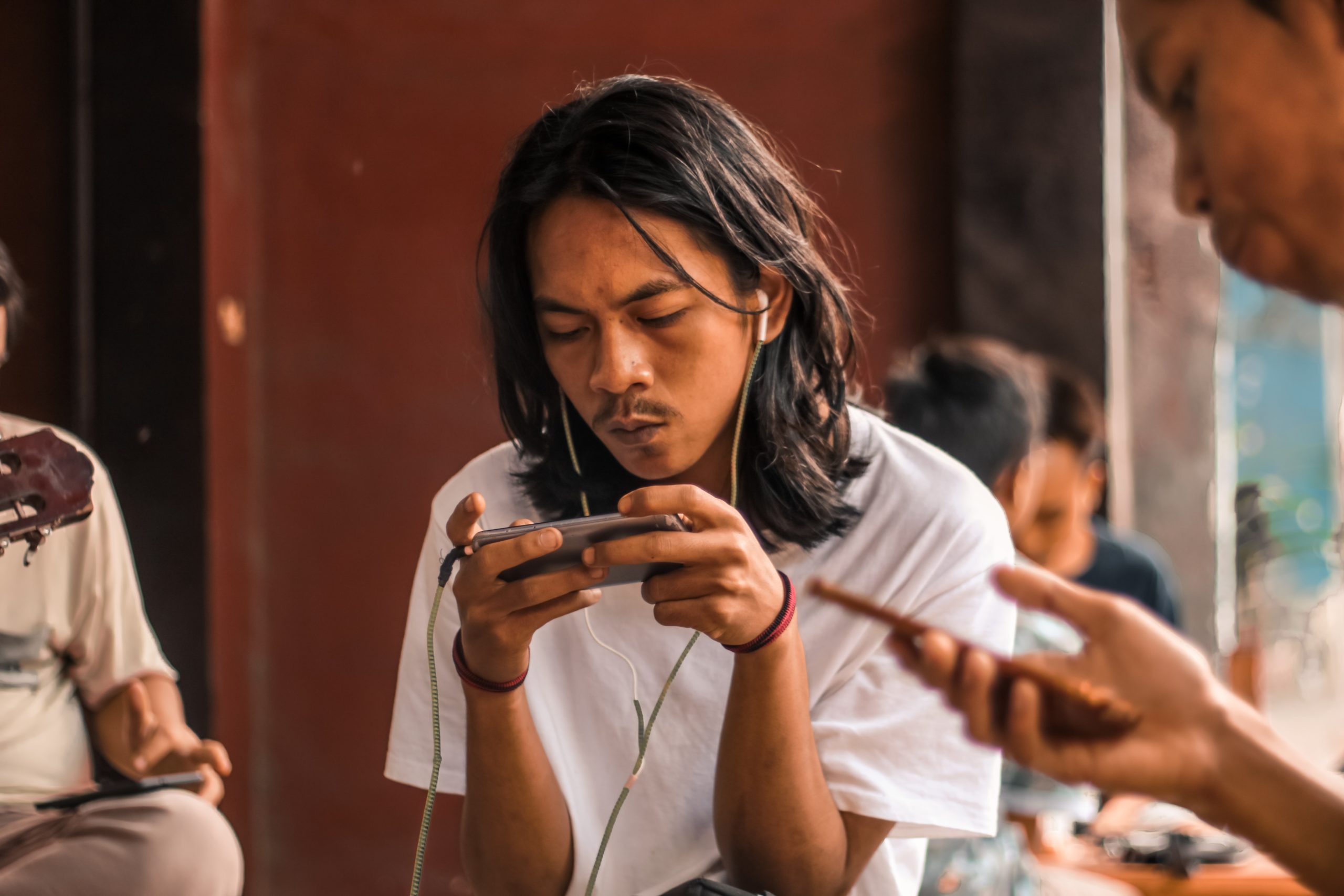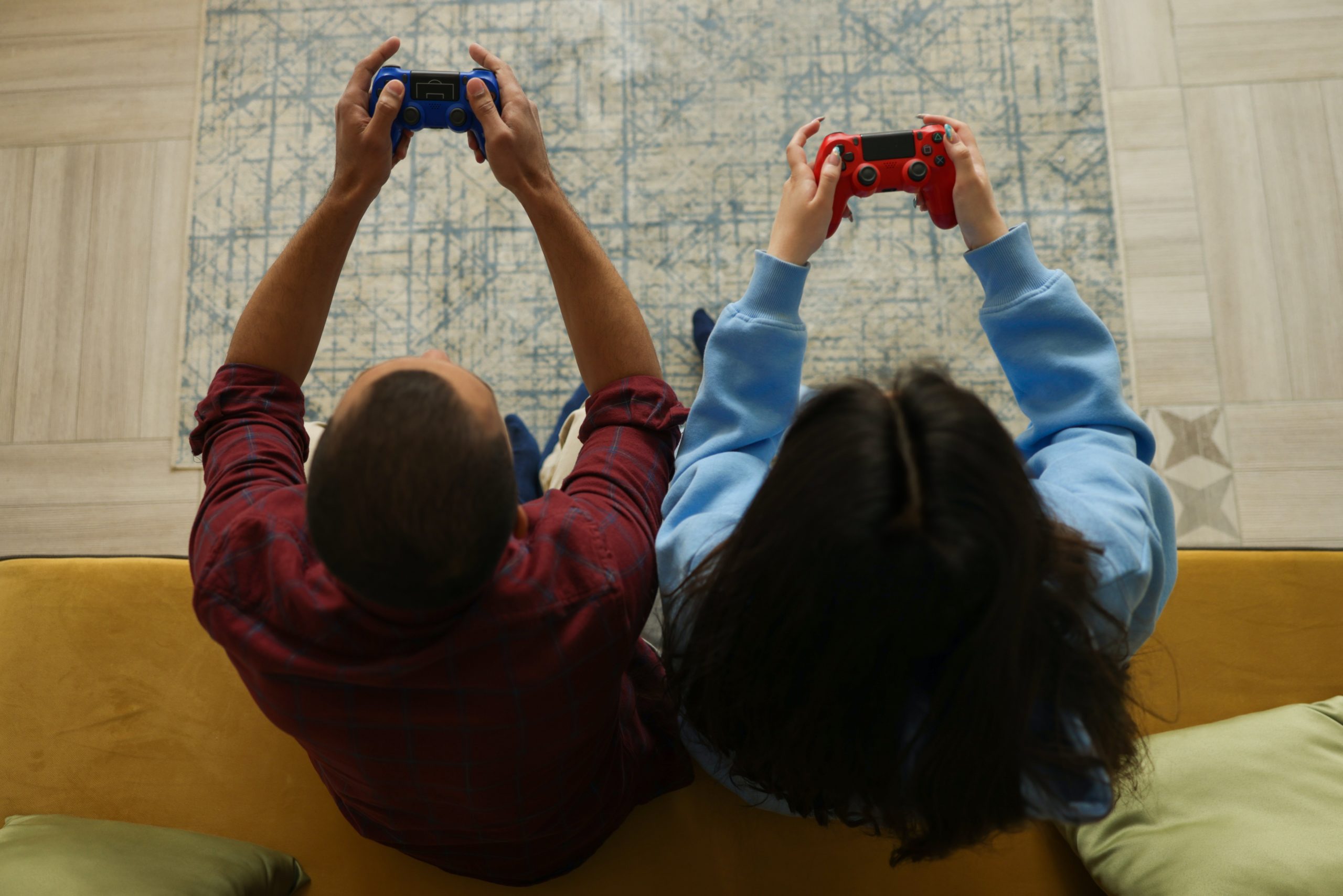Building Democracy with an Unexpected Audience: Gamers
août 12, 2022
Imagine a world in which we do not talk to soccer lovers, just because soccer is perhaps considered a childish or violent hobby – just look at how many fouls occur in decisive matches. Trying to communicate in Brazil without talking to lovers of the most popular sport in the country seems to be an impossible path.
Now, let’s consider video gamers. Currently, Brazil is the country with the largest game market in Latin America and the world, having moved around 11(eleven) billion Reais last year, with an expected growth of 6% for 2022, according to the specialized consultancy Newzoo. Many soccer professionals, by the way, are increasingly betting on video games, especially in e-sports – such as the Argentinian Sergio Agüero, CEO of KRÜ Esports, or even Neymar.
As in a soccer game, video games also create new possibilities for dreaming of a better future, especially for the most vulnerable strata of society. In recent years, mobile games such as FreeFire have been modifying the way in which the peripheries access games, contributing to democratization of entry into this universe.

Connection and sociability
In addition to e-sports, games have a social potential that is still unexplored. Unlike the typical gamer profile we usually imagine, players are diverse, from all societal strata, races, ages, creeds and sexual orientations. Many forget that what happens in the world is also reflected in what happens in games’ realities – whether in the economy, politics or cultural debate. Therefore, using games as a platform for communication and social connection is a potent opportunity. Whether on the field, at home, on public transport, in video games, mobile or PC, games do have the power to create experiences in our lives.
Whoever thinks gamers are playing alone may be far from the truth. Whether with friends, the neighbor next door or watching their favorite streamers, gamers are always accompanied. Like any cultural product, digital games generate dialogues, bonds, plots, and affections. And it doesn’t matter if you have the state-of-the-art computer, or if you’re in a cybercafé. The game space is also the space for communities, groups, clans and guilds, to exchange information, help friends, share knowledge and affinities – and even debate about politics.

Political formation
A survey carried out by Luminate, in January of this year, points out that young people in Latin America are becoming increasingly politicized through alternative channels. Forget traditional political parties or institutions, many young people point out that they began to gain political awareness from comments and opinions from people they followed on social media, or from influencers they liked. Games are complex social spaces, and despite this, few social cause organizations have looked at this universe with the necessary focus.
The problem is that there is a threat in this absence: one must always bear in mind that the creation of games has militarized roots, and that it was from the digital game communities that the first creators and formulators of the current alt-right emerged (“alternative right wing”, hate extremist groups on the rise around the world). In the association of these two factors, the rules of the game break down: it creates the conviction that gamers need to exist in a violent place, not necessarily within the game; but outside it, in community spaces. Thus, the video game is a space in dispute: between those who value democratic processes, supporters of fascist and proto-fascist systems, and a majority that do not know what to think about politics – any resemblance to reality is not mere coincidence. And in games, the far right is also speaking louder.
For these reasons, we need more democratic voices guiding conversations in the gaming world. Of course, talking about politics in digital gaming communities has adverse consequences: persecution on social media and material life; followers drop (if you are a content creator); and often account bans. This ends up making many people absent from the political debate. And many who could be allies in this dispute, such as social organizations, have wrong impressions about this audience – for a long time, gamer communities were treated as childish, or even satanic, and pointed out by a supposed apology for violence, and there is no scientific evidence that games have a direct impact on world violence. Time has come to break stereotypes and join forces.
In this case, it is necessary to recover the political being of video game communities to promote the appreciation of their social participation and their democratic values. It is necessary to remind gamer communities of their principles of dialogue, of their collaborative ideals, of their heroic posture and of their democratic voices. We can no longer pretend that games do not have such a big impact on this country as soccer matches and teams do.
This text was be translated by Alyxandra Gomes Nunes.
for Equity & Evidence